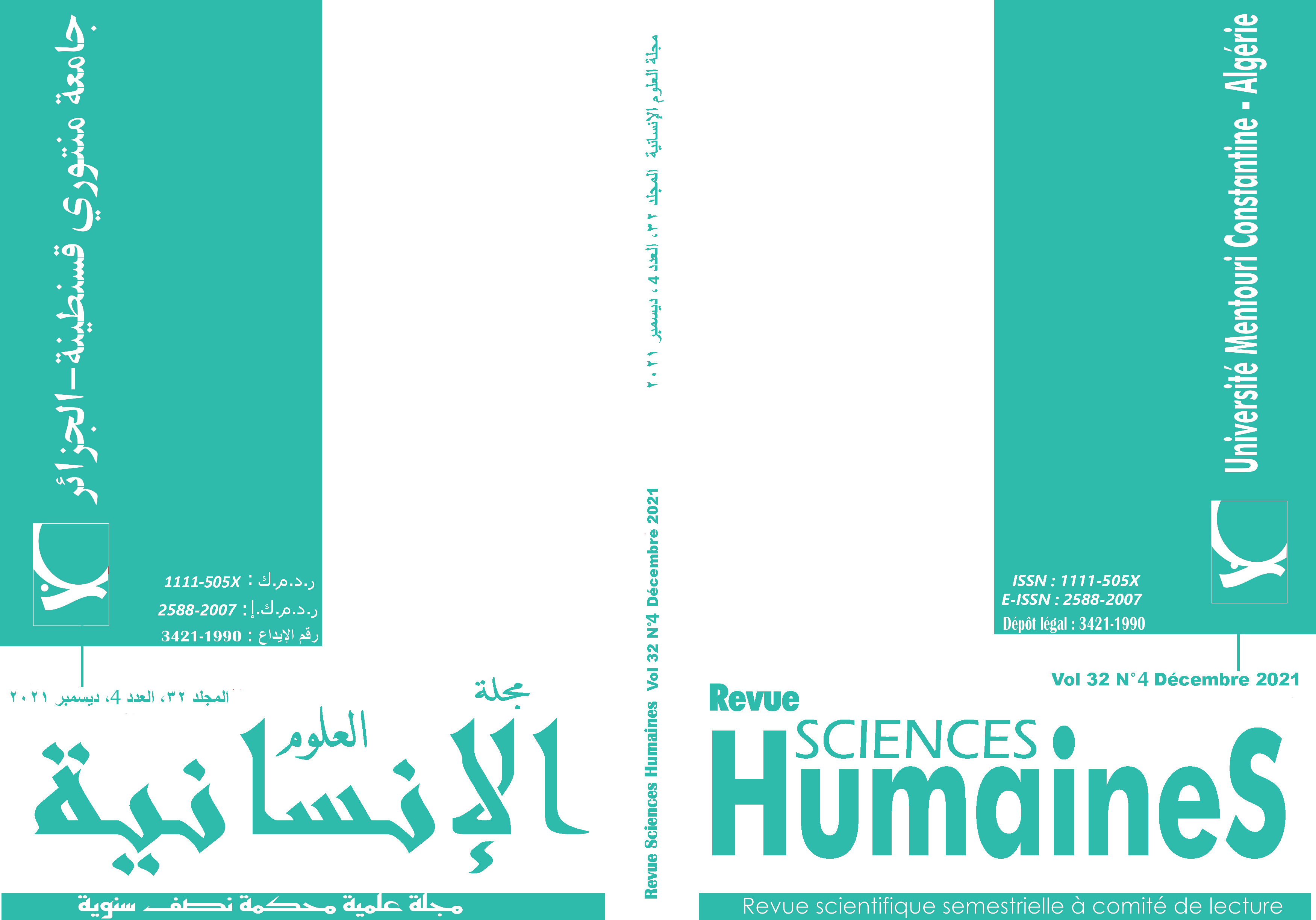Information Literacy, Social Media and Academic Achievement at Higher Education
الكلمات المفتاحية:
Information literacy competencies، social media، academic achievement، higher education، new literacy studiesالملخص
This study was conducted to investigate the effect of social media usage on information literacy skills and on the academic achievement of second year Master students of English at Frères Mentouri Constantine1 University. It aims at examining the relationship between students’ information literacy competencies and their use of social media. It also attempts to find appropriate methods to measure the study variables: social media usage, information literacy skills and academic achievement. Two questionnaires are used as research tools: one administered to a random sample of 78 students and another one to 16 of their research supervisors. The analysis of the data partly confirms our hypotheses that social media usage would not guarantee the acquisition of the necessary information literacy skills, and that improvement in information literacy performance would enhance students’ academic achievement.
التنزيلات
المراجع
. Aillerie, K.& McNicol, S. (2016). Information literacy and social networking sites: challenges and stakes regarding teenagers’ uses. Journal for Communication Studies. 9 (2), 89-100.
. Anandhalli, G. (2018). Impact of information literacy skills on the academic achievement of the students: A case study of Anjuman degree college, Vijayapura. International Journal of Research in Humanities, Arts and Literature 6(3), 1-16.
. Beghoul, Y. (2014). Plagiarism: The weakest link in teaching research skills. Revue des Sciences Humaines, Université Mohamed Khider Biskra 36 (37), 63-79.
. Cooke, M & Simpson, J (2008). ESOL: a critical guide. Oxford, United Kingdom, Oxford University Press.
. Fadel, M. R. (2017). Implementing competency based education in initial teachers training in Algeria: The case of pre-service middle school teachers of English at the higher teacher training school (ENS) of Constantine (Unpublished doctoral thesis). University ‘Freres Mentouri’, Constantine.
. Fernandez- Villavicencio, N. G. (2010). Helping students become literate in a digital networking-based society: A literature review and discussion. International Information and Library Review 42(2), 124- 136.
. Freebody, P. & Welch, A. R. (Eds.). (2005). Knowledge, culture and power: International perspectives on literacy as policy and practice. London, United Kingdom: Falmer Press.
. Hootsuite (2019). 130+ social media statistics that matter to marketers in 2019. Retrieved on 15 October 2019 from https://blog.hootsuite.com/social-media-statistics-for-social-media-managers/#general.
. Kern, R. (2000). Literacy and language teaching. Oxford, United Kingdom: Oxford University Press.
. Kuss, D. J.& Griffiths, M. D. (2011). Online social networking and addiction: A review of the psychological literature. International Journal of Environmental Research and Public Health, 8, 3528- 3552.
. Leu, D. J., Kinzer, K, Coiro, J, Castek, J & Henry, L.A. (2013). New literacies: A dual-level theory of the changing nature of literacy. In U. Alvermann & R. Uddell, (Eds.), Theoretical models and processes of reading. International reading association.
. McCaffery, J., Merrifield, J., & Millican, J. (2007). Developing adult literacy: Approaches to planning, implementing, and delivering literacy initiatives. London, United Kingdom: Oxfam.
. Mistar, J. (2011). A study of the validity and reliability of self-assessment. TEFLIN Journal, 22(2), 45- 58.
. Mohagheghzadeh, M. S. (2014). The impact of computer and information communication technology literacy on the academic achievement of medical and dental students at Shiraz University of Medical Sciences. European Scientific Journal, 10(9), 273-280.
. Pahl, K. Rowsell, J. (2005). Literacy and education: understanding the new literacy studies in the classroom. London, United Kingdom: Paul Chapman Publishing.
. Penzhorn, C. (2013). The use of social media in teaching a campus-wide information literacy course. Mousaion. 31(3), 57-73.
. Salleh, M.I.M., Abdul Halim, A.F., Yaacob R.A.R & Yoseff Z. (2011). Measuring the effect of information literacy on the undergraduates’ academic performance in higher education. International Conference on Social Science and Humanity. IPEDR 5, 506- 510.
. Soleymani, M. R. (2014). Investigating the relationship between information literacy and academic performance among students. Journal of Education and Health Promotion, 3, 1-4.
. Swansea University, Information Services and Systems (2013). Information and digital literacy strategy.
. The Association of College and Research Libraries (2000). Information literacy competency standards for higher education. Chicago, American Library Association. Retrieved from: http://www.ala.org/acrl/standards/informationliteracycompetency
. Torone, E., Bigilow, M., & Hansen, K. (2009). Literacy and second language oracy. Oxford, United Kingdom: Oxford University Press.
. York, T. T., Gibson, C., & Rankin, S. (2015). Defining and measuring academic success. Practical Assessment, Research and Evaluation, 20(5), 1-20.
التنزيلات
منشور
كيفية الاقتباس
إصدار
القسم
الرخصة

هذا العمل مرخص بموجب Creative Commons Attribution-NonCommercial-NoDerivatives 4.0 International License.
















